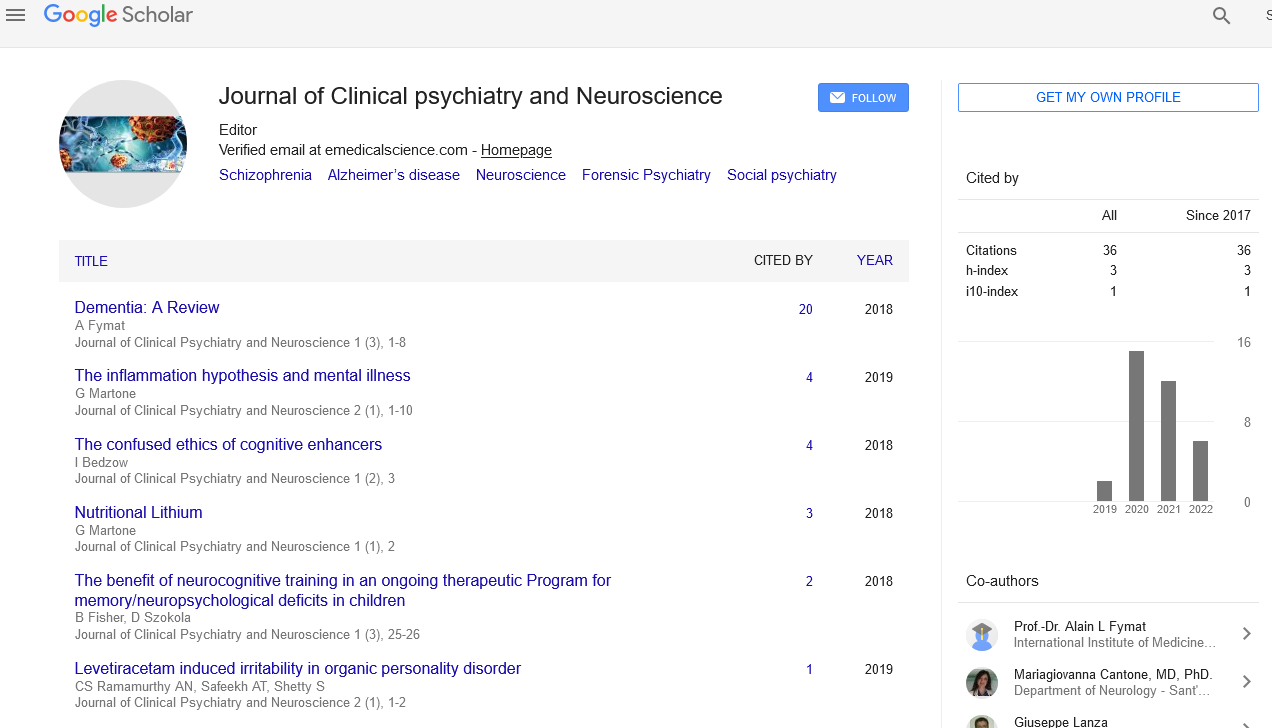
Sign up for email alert when new content gets added: Sign up
Suicide risk management of Psychiatric patients
5th World Congress on Psychiatry & Mental Health Nursing
January 25, 2022 | Webinar
Fatma Ayhan
Assistant professor in Psychiatry, Turkey
Keynote: J Clin Psychiatr Neurosci
Abstract :
Globally, close to 800,000 people die by suicide each year. Suicide is the most likely to result in death among the events that threaten patient safety, and it is the most common cause of lawsuits filed against the psychiatric team (1, 2). Nurses' awareness of warning signs, monitoring the patient's emotional state, establishing a therapeutic relationship and taking precautions to prevent suicide have an important role in patient safety (3). In this article, the suicide risk management process in the field of psychiatry will be explained. A simple algorithm that questions past suicide attempts, current plans, likelihood of attempt, and protective factors can serve as a concise assessment for risk stratification of patients considered to have suicidal potential (4). Overall, attempts to set up appointments for outpatient follow-up, referral or mental health treatment for low-risk individuals, and referral to community resources. Evaluation of those at moderate risk by a psychiatrist, limitation of lethal means, higher level of supervision, safety plans and crisis service referrals. High-risk individuals should be evaluated by psychiatrists in the emergency department and possibly hospitalized in an inpatient psychiatric hospital (5, 6, 7; 8). Competencies have been developed for mental health clinicians in assessing and managing suicide risk; however, there is no standard qualification for psychiatric nurses. For this reason, APNA has developed a practice guide that includes competencies for psychiatric nurses working in a hospital setting (9).
Biography :
Fatma Ayhan has a bachelor's degree in Nursing and Sociology. She has a master's degree in Anatomy and Nursing. She completed her doctorate in Psychiatric Nursing. She has completed Cognitive Behavioral Therapy and Dialectical Behavioral Therapy trainings. He conducts research in the field of psychiatry on risk assessment, risk management, violence, substance addiction and attachment, depression, anxiety, postpartum depression.




